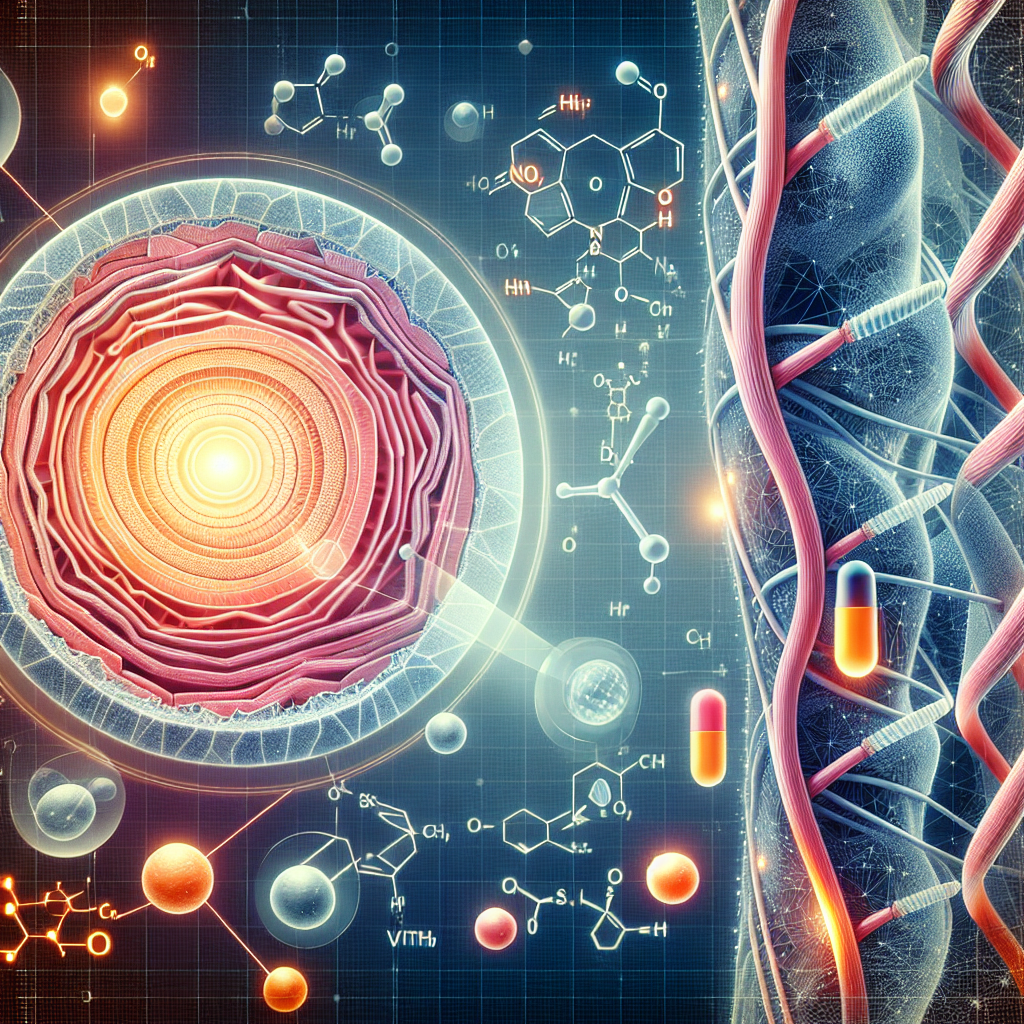The Science Behind Vitamins and Skin Elasticity

Discover the science behind vitamins and skin elasticity! Learn how the right vitamins can enhance your skin’s health and youthfulness. Visit My Vibrant Vitality now to start your journey towards vibrant, elastic skin.
Exploring the Role of Vitamins in Maintaining Skin Elasticity
The science behind vitamins and skin elasticity is a fascinating field of study that has garnered significant attention in recent years. As we age, our skin naturally loses its elasticity, leading to the formation of wrinkles and fine lines. However, research suggests that certain vitamins can play a crucial role in maintaining skin elasticity, thereby slowing down the aging process.
Vitamins are organic compounds that our bodies need in small amounts to function properly. They are essential for various bodily functions, including growth, digestion, and nerve function. Some vitamins also have antioxidant properties, meaning they can protect our cells from damage caused by free radicals, unstable molecules that can harm cellular structures. This protective function is particularly important when it comes to skin health, as free radical damage can accelerate the aging process, leading to premature wrinkles and loss of elasticity.
One of the key vitamins in maintaining skin elasticity is vitamin C. This water-soluble vitamin is a potent antioxidant that can neutralize free radicals, thereby protecting the skin from damage. Moreover, vitamin C is essential for the synthesis of collagen, a protein that gives the skin its elasticity. As we age, our bodies produce less collagen, leading to sagging skin and wrinkles. By boosting collagen production, vitamin C can help maintain skin elasticity and slow down the aging process.
Another important vitamin for skin health is vitamin E. Like vitamin C, vitamin E has antioxidant properties that can protect the skin from free radical damage. In addition, vitamin E can help maintain skin moisture, which is crucial for skin elasticity. Dry skin is less elastic and more prone to wrinkling, so keeping the skin hydrated can help maintain its elasticity.
Vitamin A is another key player in skin health. It promotes the turnover of skin cells, ensuring that the surface of your skin is made up of healthy, new cells. This process is crucial for maintaining skin elasticity, as old, damaged cells can make the skin look dull and saggy. Moreover, vitamin A can stimulate the production of collagen and elastin, two proteins that give the skin its elasticity and firmness.
Lastly, vitamin D plays a crucial role in skin health. It promotes skin cell growth and repair, which can help maintain skin elasticity. Moreover, vitamin D can protect the skin from damage caused by the sun, one of the main causes of premature skin aging.
In conclusion, vitamins play a crucial role in maintaining skin elasticity. Vitamins C, E, A, and D, in particular, have properties that can protect the skin from damage, boost collagen production, maintain skin moisture, and promote skin cell turnover. Therefore, incorporating these vitamins into your diet or skincare routine can help maintain your skin’s elasticity and slow down the aging process. However, it’s important to remember that while vitamins can support skin health, they cannot replace a healthy lifestyle and good skincare habits. Always protect your skin from the sun, stay hydrated, eat a balanced diet, and avoid smoking to keep your skin looking its best.
The Science of Skin: How Vitamins Contribute to Skin Elasticity

The science of skin is a fascinating field that has seen significant advancements in recent years. One area that has garnered particular attention is the role of vitamins in maintaining and enhancing skin elasticity. Skin elasticity refers to the skin’s ability to stretch and then return to its original shape, a quality that naturally diminishes with age. However, research suggests that certain vitamins can help to preserve and even improve this vital characteristic.
Vitamins are organic compounds that our bodies need in small amounts to function properly. They play a crucial role in various biological processes, including cell growth, immune function, and skin health. When it comes to skin elasticity, vitamins A, C, and E are particularly important.
Vitamin A, also known as retinol, is renowned for its anti-aging properties. It promotes the production of collagen, a protein that gives skin its elasticity and strength. As we age, our bodies produce less collagen, leading to wrinkles and sagging skin. By stimulating collagen production, vitamin A can help to counteract these effects, resulting in firmer, more youthful-looking skin.
Vitamin C, meanwhile, is a powerful antioxidant that protects the skin from damage caused by free radicals. Free radicals are unstable molecules that can damage cells, leading to premature aging. Vitamin C neutralizes these harmful molecules, preventing them from breaking down collagen and elastin, the proteins responsible for skin’s elasticity and firmness. Moreover, vitamin C is essential for the synthesis of collagen, further contributing to skin elasticity.
Vitamin E, another potent antioxidant, works in tandem with vitamin C to protect the skin from oxidative stress. It also helps to maintain the skin’s moisture balance, which is crucial for maintaining skin elasticity. Dry skin is less elastic and more prone to wrinkling, so keeping the skin hydrated is key to preserving its elasticity.
While these vitamins are essential for skin health, it’s important to note that they can’t work miracles on their own. A healthy lifestyle, including a balanced diet, regular exercise, and adequate sleep, is also crucial for maintaining skin elasticity. Moreover, while topical application of these vitamins can be beneficial, they are most effective when consumed as part of a healthy diet. Foods rich in these vitamins include carrots, sweet potatoes, and spinach for vitamin A; citrus fruits, strawberries, and bell peppers for vitamin C; and nuts, seeds, and leafy green vegetables for vitamin E.
In conclusion, the science of skin reveals a strong link between vitamins and skin elasticity. Vitamins A, C, and E, in particular, play a crucial role in maintaining and enhancing this vital characteristic. They do this by promoting collagen production, protecting the skin from free radical damage, and maintaining the skin’s moisture balance. However, these vitamins are most effective when combined with a healthy lifestyle and a balanced diet. So, if you want to keep your skin looking youthful and supple, make sure to eat a diet rich in these skin-friendly vitamins and live a healthy lifestyle.
Unveiling the Connection Between Vitamin Intake and Skin Elasticity
The science behind vitamins and skin elasticity is a fascinating field of study that has been gaining traction in recent years. As we age, our skin naturally loses its elasticity, leading to the formation of wrinkles and fine lines. However, research suggests that certain vitamins can help to slow down this process, thereby promoting healthier and younger-looking skin.
Vitamin C, for instance, plays a crucial role in the production of collagen, a protein that gives the skin its elasticity. Collagen fibers are responsible for keeping the skin firm and taut, but their production decreases as we age. By boosting collagen production, Vitamin C can help to maintain skin elasticity and reduce the appearance of wrinkles.
Moreover, Vitamin C is a potent antioxidant that can protect the skin from damage caused by free radicals. Free radicals are unstable molecules that can damage collagen and cause skin aging. By neutralizing these harmful molecules, Vitamin C can help to preserve skin elasticity and slow down the aging process.
Similarly, Vitamin E is another powerful antioxidant that can protect the skin from oxidative stress, a major contributor to skin aging. Oxidative stress occurs when there is an imbalance between the production of free radicals and the body’s ability to counteract their harmful effects. By neutralizing free radicals, Vitamin E can help to prevent oxidative stress and maintain skin elasticity.
In addition to its antioxidant properties, Vitamin E can also promote skin elasticity by enhancing moisture retention. Dry skin is more prone to wrinkles and fine lines, but Vitamin E can help to keep the skin hydrated and supple, thereby preserving its elasticity.
Vitamin A, on the other hand, can promote skin elasticity by stimulating the production of fibroblasts, the cells responsible for developing tissue that keeps skin firm and healthy. As we age, the number of fibroblasts decreases, leading to a loss of skin elasticity. However, Vitamin A can help to reverse this process by increasing fibroblast production.
Furthermore, Vitamin A can also promote skin elasticity by encouraging the turnover of skin cells. This process, known as cell turnover, is essential for maintaining a youthful and radiant complexion. By promoting cell turnover, Vitamin A can help to keep the skin elastic and vibrant.
Lastly, Vitamin D plays a vital role in skin repair and regeneration. When the skin is damaged, it loses its elasticity, but Vitamin D can help to restore it by promoting the growth of new skin cells. Moreover, Vitamin D can also protect the skin from damage caused by the sun, a major contributor to skin aging.
In conclusion, vitamins play a crucial role in maintaining skin elasticity and slowing down the aging process. By boosting collagen production, neutralizing free radicals, enhancing moisture retention, stimulating fibroblast production, promoting cell turnover, and aiding in skin repair, vitamins can help to keep the skin firm, taut, and youthful. Therefore, a diet rich in these vitamins, or the use of skincare products containing them, can be beneficial for maintaining skin elasticity. However, it’s important to remember that while vitamins can support skin health, they cannot replace a balanced diet, regular exercise, and a healthy lifestyle.